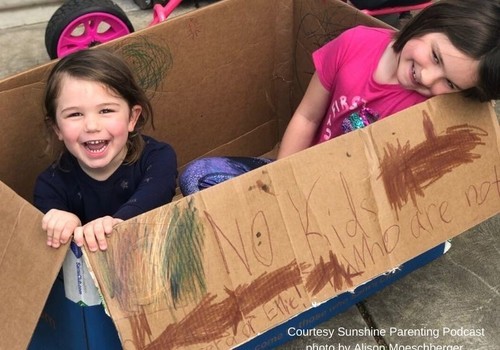
This post is written with all due respect and the fervent hope for the ultimate wellbeing of all those directly fighting coronavirus. Those at home containing the threat must also summon strength from within.
This will require endurance and for us to be durable in body, mind, and our relationships.
Luckily, the intuition, generosity, humor and other human assets we possess shine brightly during difficult times. They’ll get us through—along with some good planning and design.
To that end, here are some practical, empowering, mostly no-cost strategies so you, your children, or other members of your household can be durable, happier, and more hopeful managers of the day to day:
First, Reassure

Before coronavirus, kids had complaints like “all my mom cares about is her phone” and “I can’t get my dad’s attention.” In these scary times, our loved ones need to know we’re there for them, no matter what.
- When talking to a child—or anyone in the household—look in their eyes and listen closely to what they say. Your undivided attention helps them feel safe and secure.
- Save money on prescriptions and freely dispense hugs—your own “combination love potion, muscle relaxant, and tranquilizer,” as described in The Durable Human Manifesto.
- Many people have joyfully discovered videoconference platforms like Skype and Zoom (with these security precautions) can keep the love alive with those they can’t be with physically. The photo above is our family’s meetup for my son’s 31st birthday, a celebration he says was among his most meaningful.
- In these turbulent times, anxiety and anger may creep up or outright ambush you. Practice and share techniques for calming down such as mindful deep breathing or Inner Explorer’s Family Mindfulness app, now available at no cost.
- So we’re not completely consumed by worry, we need regular breaks from checking the news, as do our kids. “Very young children should not be watching this at all,” according to Dr. Robin Gurwitch, psychiatry professor at Duke University School of Medicine.
- Just about anyone will chill out watching livestreams of the gentle movements of animals in zoos and aquaria. Or, ditch the screen and get the same benefit from gazing at up clouds or the starry night sky.
Provide Structure
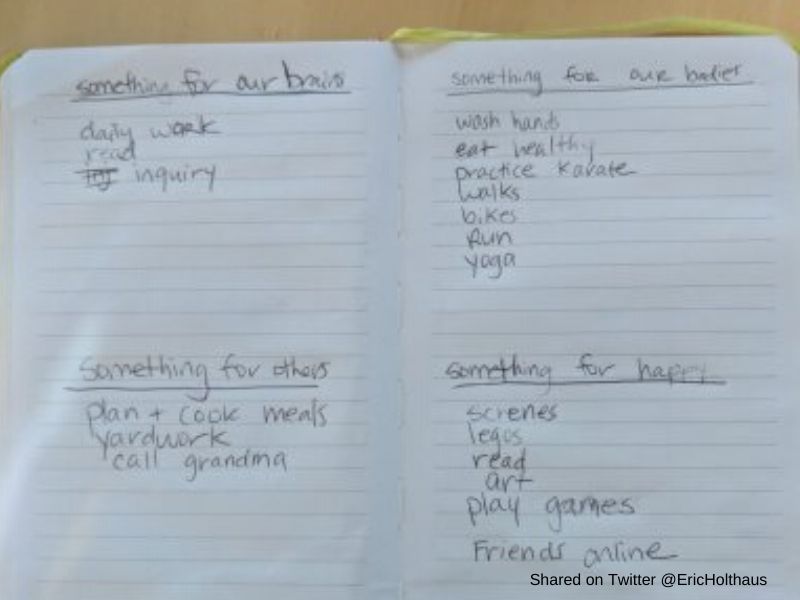
In times of uncertainty, we all need a plan. “Maintaining routines provides a sense of security,” says Nancy Carlsson-Paige, longtime parent advisor and co-founder of Defending the Early Years, especially “in a situation that may go on for a while.”
- When working remotely at home, make a daily schedule of your business and your off hours, including meals, snacks, together time, contact with nature (if only to look out at something green), and physical activity.
- A chart with drawings of planned activities for the day will help toddlers.
- School-aged kids’ daily plans can mimic what they had been doing in school (Music on Wednesdays, Art on Fridays, etc.). This book helps make sense of a child’s drastic life changes: Why Can’t I Go to School? (PDF in English, Spanish, Chinese, Korean, Arabic and Turkish).
- Whether kids have assigned schoolwork or not, their day plan should also include 3-dimensional full-sensory play or other exercise, skill-building and/or chores, quiet time, and a bedtime routine.
- Lots of self-reliance skills are on the “Ready for Adulthood” checklist in the book Happy Campers: 9 Summer Camp Secrets for Raising Kids Who Become Thriving Adults by Audrey Monke.
Establish Boundaries
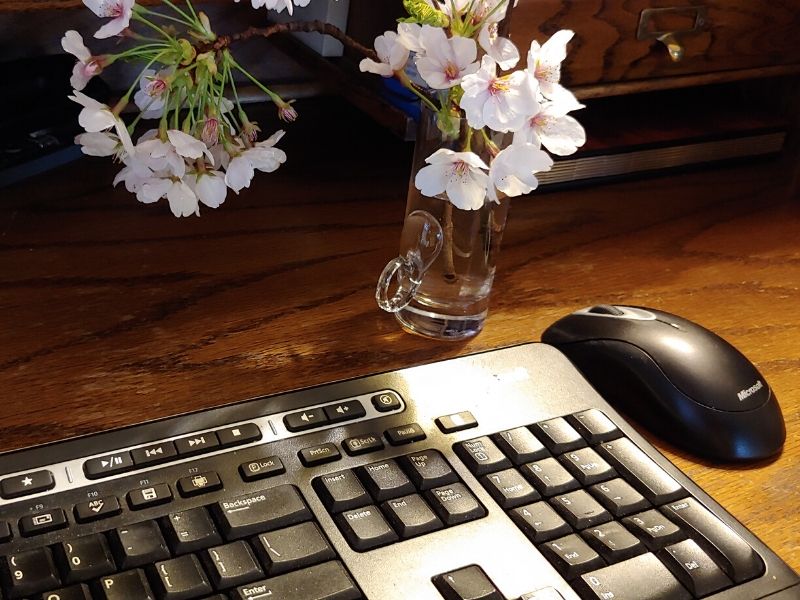
Boundaries provide a sense of security. For instance, if tweens and teens spend too much time on social media, “it can increase anxiety, depression, and disrupt sleep,” says Dr. Gurwitch. “We need to step in and put some barriers on that.”
- Make it a no-brainer that those in the household get plenty of vital face-to-face time and hugs by establishing tech no-use areas and time-off periods, at least for meals and bedtime. This American Academy of Pediatrics free planning tool can help.
- Practice feng shui on at-home workspaces to create a sense of flow and harmony. Confine your activities to a specific area so it’s easier to “leave” after work hours and your business doesn’t seep into shared spaces. Add a touch of nature with a potted plant or vase of spring blossoms.
- A child’s work surface should be at about their own elbow height, so their feet rest comfortably on the floor. To reduce exposure to wireless radiation, laptops or tablets should be placed on the surface or on a thick pillow, not on the lap. See more guidelines in How To Be a Durable Human.
- Kids age 4 and under are officially advised to spend an hour or less per day on screens. For kids 5 to 18, it depends on what they’re doing, but new research shows the more hours kids spend, especially on screen-based entertainment, the more problems they have, including weakened language skills.
- In this time when we’re using screens for so many reasons, kids still can’t be entirely left to their own devices. Without duration and content screen limits, kids can easily overdo it and become overstimulated, prone to fights with you, and at greater risk for digital addiction—right down to the toddlers.
- Even if a child must spend hours onscreen for virtual school, he or she still needs exercise, to do chores, etc., so—by default—he or she just won’t have much, or any, time left for screen-based entertainment.
- To guide boundary-setting, talk to your kids about what they like and/or need to do tech-wise and why. Info for parents on video games, movies, TV shows, and more is at Common SenseMedia. These are 14 popular apps and social media sites in particular to be aware of.
Aim for Mutual Benefit

There will be times (probably every day), you’ll need your ingenuity to get things done. Dovetail parents’ and kids’ activities for everyone’s mutual benefit.
- If working from home, consider noise-cancelling headphones to help you focus and participate on conference calls (but only if you don’t have to keep one ear on the kids). To provide white noise, Coffitivity pours on the bygone sounds of a coffee shop.
- At times when you know you need to work uninterrupted, engage kids in what they like to do. That could be their allotted time on devices or self-directed imaginative play with Legos, Play-Doh, box of dress-up clothes, big carboard box, or by playing hide and seek, freeze tag, or other physical game.
- When you can’t read to your kids, famous people can do it for you, such as Oprah and other actors or astronauts from outer space. Audible offers lots of free children’s books and these are the New York Times favorite kid podcasts. Big kids can also read to little kids.
- Spread the home workload and build those self-reliance skills by assigning chores such as making dinner or sorting the laundry.
- You can also divide and conquer by putting each family member in charge of cleaning and neatening a different area of the house.
Maximize Movement

Moving maintains physical durability and helps you blow off steam. According to the Centers for Disease Control, adults need a half hour of physical activity a day and kids need an hour.
- Luckily, daily exercise can be broken into chunks of time, such as this easy no-equipment 10-minute workout (guaranteed not to involve “planks”).
- To avoid a sluggish metabolism and for a quick burst of energy, move one minute for every hour you sit and/or work at a screen, such as by doing 60 jumping jacks.
- It may take creativity to get older kids moving, such as by drawing a pickleball court in chalk on the pavement or hopscotch in tape on the kitchen floor.
- Kids can combine movement, learning, and be refreshed by the breeze and sunshine through games like a nature scavenger hunt. Indoor learning games include this clever adjectives activity played with Post-It notes.
- For free-form fun, kids love impromptu dance parties. Adults also like imitating various creatures in the Amazon Alexa “skill,” Animal Workout.
- The whole family (or members who need breaks) can get in their steps by taking walks during work breaks, after dinner, and on weekends.
Conjure Delight
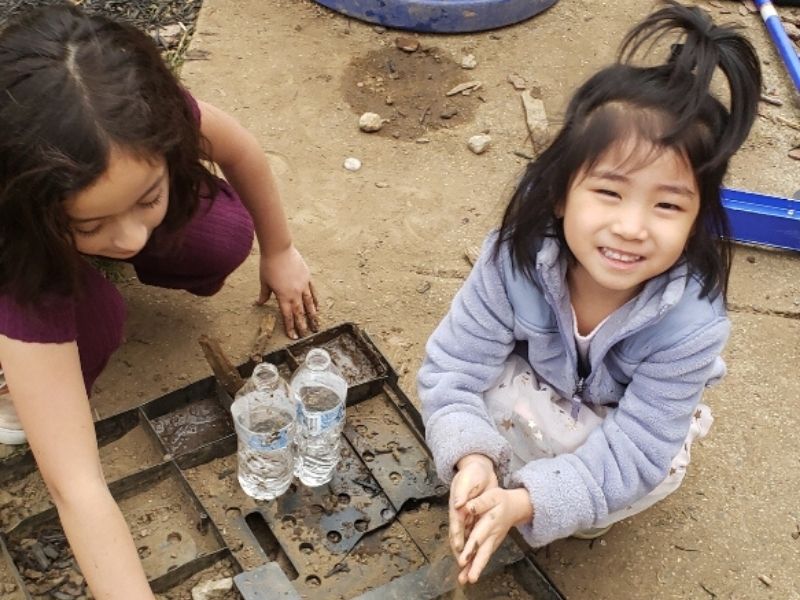
We are human animals, after all. When we engage our “big five” senses, we feel alive instead of stultified. So kids can have that experience, “Be willing to live with the mess,” says Carlsson-Paige.
- Add some silly to your home workspace by sticking googly eyes on your stapler or framing a faux work motto like “MEETINGS: None of Us is as Dumb as All of Us.”
- Food is a true pleasure of life. Kids can collect and cook recipes from relatives (who may also want to direct via FaceTime), then publish a family cookbook.
- Little kids love water play. When meals aren’t in the making, fill up the kitchen sink and let little ones play with strainers, beaters, funnels, etc. Linger longer over bathtime rituals.
- They say laughter is the best medicine, so have a daily dose, like of Arnold Schwarzenegger in his kitchen with his mini burrow and pony. For an amusing lunchtime break, attend Lunch Doodles with Mo Willems, served up weekdays by the Kennedy Center. Our family kicked back and had fun across the time zones playing CODENAMES online together via Zoom.
- Moments of self-compassion can do wonders, such as spreading luscious-smelling lotion on your tired feet. If you feel more ambitious, plan a whole-house Spa Day (or Hour).
Enhance Sleep
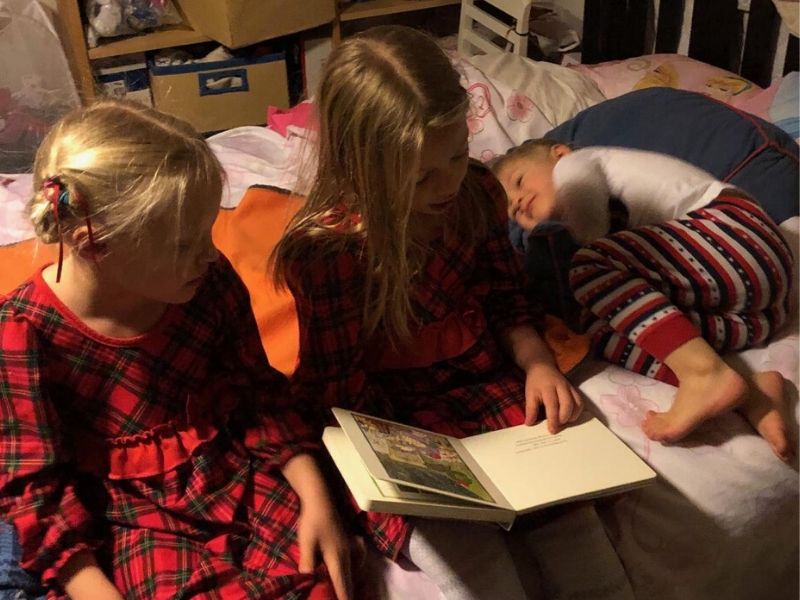
A good night’s sleep was scarce before coronavirus. Use this unusual time to strive for better sleep hygiene. “When sleep’s disrupted there is a cascading effect of other concerns and challenges,” Dr. Gurwitch reminds us—which we sure don’t need now on top of everything else.
- If you need to tele-work, resist grabbing your laptop or phone to check for work messages when you wake up in the morning. Make a habit instead of getting up, ready, and out of the bedroom for a clean transition to work mode.
- Even without “real” school, kids should stick with regular wake up and bed times to create a healthful 24-hour rhythm.
- When it’s bedtime for kids, bring back a tradition that may have fallen off the radar, especially for the busy older ones: cuddle up to read a book out loud. These are some great choices.
- Make every bedroom screen-free at night—a must for restful uninterrupted sleep. Charge devices elsewhere in the house, like the kitchen or hallway, and give everyone an alarm clock.
- If an adult in the house must be reachable, silence that phone for all but emergency notifications (or make sounds barely audible), then place it face down, out of sight, and out of reach.
GATHER FOR A PURPOSE
To help the household run smoothly and break up interpersonal logjams, on-demand or regular household meetings can be the key. You may want on hand a peace-keeping tool indigenous peoples (and my family) have long used to facilitate civil discussions: the Talking Stick.
The stick is passed from person to person so each can have a say, but only the one holding the stick may speak. Everyone else must listen. Kids learn patience while waiting their turn and feel important to have their voices heard.
But you don’t need a fancy stick like mine. You can designate a simple hand-held household object, like a salt shaker or ketchup bottle, to serve the same purpose.

Those are some ideas should form a firm foundation. As you move further into the new normal, you’ll develop lots of your own.
May your efforts during this challenging time be guided by the words of Anne Frank, who wrote in The Diary of a Young Girl:
I’ve found that there is always some beauty left — in nature, sunshine, freedom, in yourself; these can all help you.
About the author:
Jenifer Joy Madden is a health journalist, digital media adjunct professor, TEDx speaker, founder of DurableHuman.com, and parent of three self-reliant durable young adults. Jenifer’s words have appeared on news outlets ranging from ABC News to The Washington Post to Discovery Health Channel. She’s written two life- and tech-balance advice books, has a line of Durable Human products, and hosts the parent ed classroom, Durable U.
Click here for a FREE Family Time Priorities Checklist



